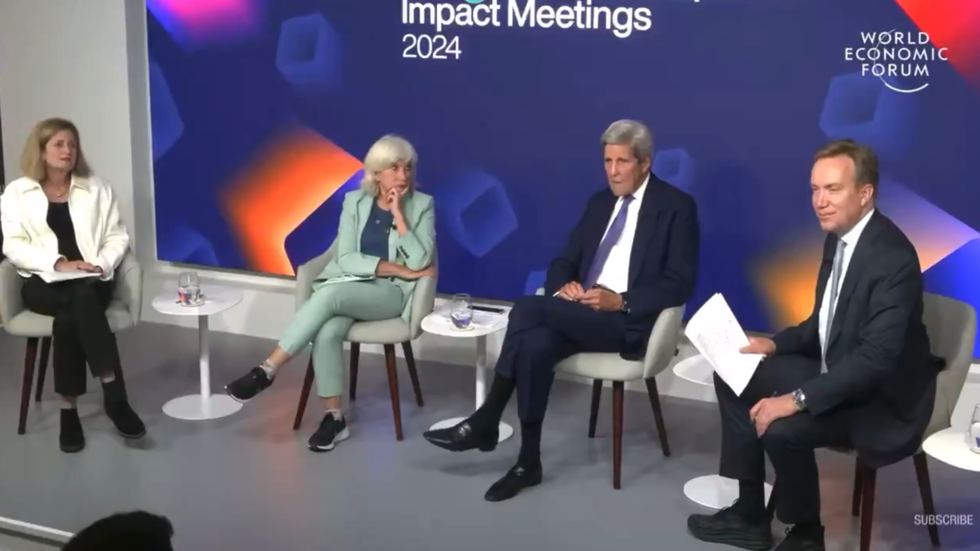The US Constitution Faces Scrutiny in the Battle Against Disinformation: Insights from John Kerry and Media Leaders
In a thought-provoking discussion at the World Economic Forum (WEF) Green Energy panel last week, former presidential climate envoy and Secretary of State John Kerry highlighted a growing concern: the challenges posed by the US Constitution’s First Amendment in combating the spread of disinformation. Drawing from recent media trends and public sentiment, Kerry shared his insights on the difficulties of governing in an age where information sources are numerous and varied.
The Disinformation Dilemma
John Kerry, who served under President Barack Obama’s administration, pointed out the complications that arise in democratic societies due to the freedom individuals have in choosing their news sources. "It’s really hard to govern today," Kerry said, emphasizing how the traditional "referees" that once determined the veracity of information have been "eviscerated." This shift, driven largely by the influence of social media, has made it increasingly challenging to build consensus within democracies.
Kerry went on to suggest that the First Amendment, which enshrines the freedom of speech and the press, acts as a "major block" against efforts to curb disinformation. "If people go to only one source… and they’re putting out disinformation, our First Amendment stands as a major block to simply hammering it out of existence," he asserted. While he recognized the importance of these freedoms, he also stressed the need for democratic nations to find ways to govern effectively amid the onslaught of varied and often conflicting information sources.
Democracy Under Strain
Kerry’s concerns are part of a larger conversation about the effectiveness of democracies in responding to modern challenges. "I think democracies are very challenged right now and have not proven they can move fast enough or big enough to address the challenges we face," he said. The ability for democracies to adapt and implement change quickly remains a central issue, especially as societies grapple with pressing problems like climate change and social inequality.
These sentiments were echoed by Emma Tucker, Editor in Chief of the Wall Street Journal, at another WEF event earlier this year. Tucker lamented the loss of corporate media’s traditional control over information. "We owned the news. We were the gatekeepers, and we very much owned the facts as well," she noted. The democratization of news and information sources has undeniably broadened access but has also fragmented the landscape, complicating the task of identifying universally accepted truths.
Trust in Media at an All-Time Low
Adding to the complexity is the public’s waning trust in the media. According to a study conducted in June by the think tank Populace, in collaboration with Gradient and YouGov, Americans are even more skeptical of the media than public polling suggests. While 24 percent of Americans claim to trust the media to tell the truth, only 7 percent express that sentiment privately. This discrepancy signals a deeper distrust that transcends public declarations and gestures.
Moving Forward
As nations worldwide confront the twin challenges of disinformation and declining trust in media, the conversation initiated by Kerry and other leaders underscores the urgent need for innovative solutions. Whether through policy changes, educational initiatives, or technological interventions, the road ahead requires a delicate balance between safeguarding freedoms and ensuring an informed, cohesive public.
This ongoing debate is not merely an academic exercise; it has real-world implications for governance, societal resilience, and the health of democracies globally. As election rhetoric intensifies and the digital landscape continues to evolve, the search for effective governance mechanisms that accommodate both individual freedoms and collective truth-telling becomes ever more critical.
For more information on the World Economic Forum and its initiatives, visit the official website.
Note: This article is intended to provide context and analysis on recent statements and studies concerning disinformation, media trust, and governance in democratic societies.
